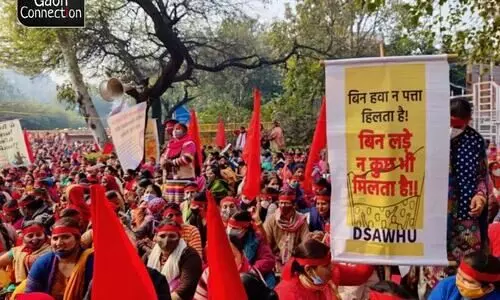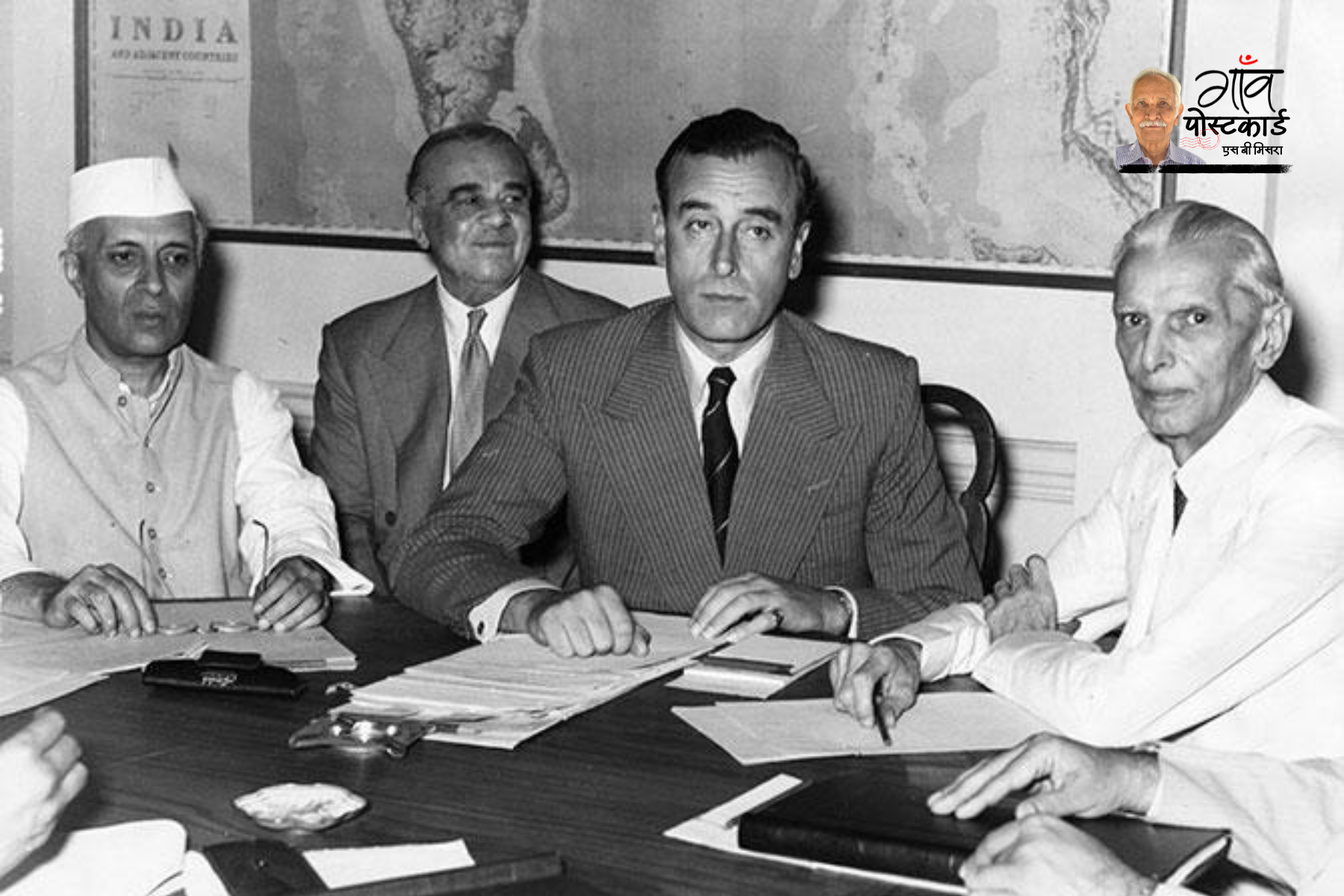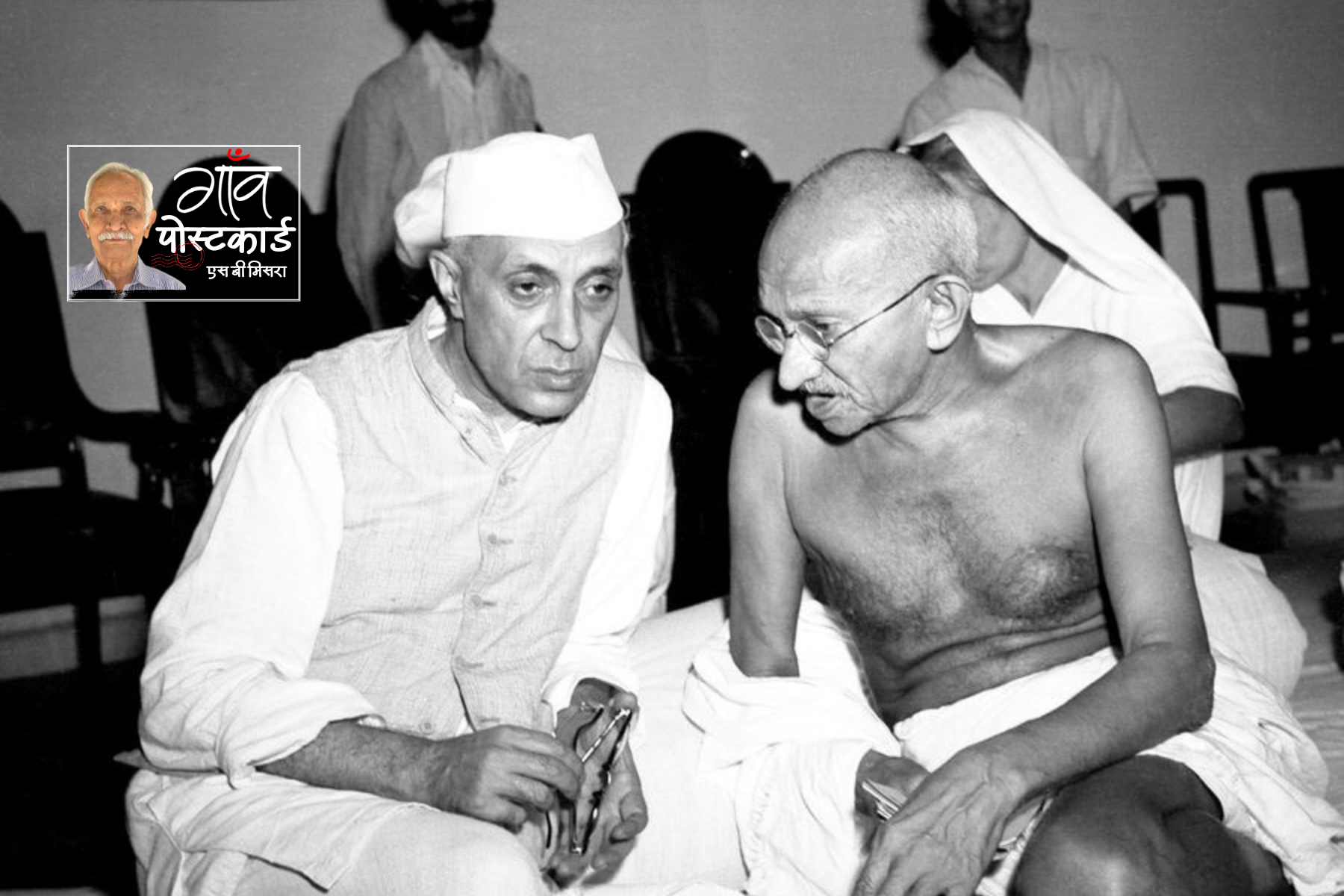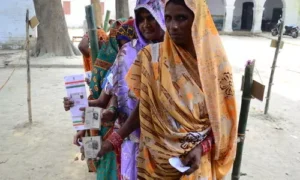Having protested against the Delhi government for 38 days to demand better wages, a section of the anganwadi workers has now filed a lawsuit against the government for the alleged arbitrary termination of their services in the aftermath of the protests.
The Delhi State Anganwadi Workers and Helpers Union (DSAWHU) which is representing the interests of an estimated 500 terminated workers has moved the Delhi High Court and termed the termination as an ‘act of vendetta’ by the state government.
“The reason behind their termination is because of their affiliation with the union (DSAWHU). This is the vendetta that the government is unleashing on them. No inquiry has been done by the government yet. The workers were not even given a chance to present their case,” Kawalpreet Kaur, the lawyer representing the terminated workers’ case, told Gaon Connection.
The protests by the anganwadi workers in Delhi lasted for 38 days, starting January 31 and ending on March 10 after Kailash Gahlot, the state Minister for Women and Child Development and Anil Baijal, Lieutenant Governor of Delhi, jointly invoked the Haryana Essential Services Maintenance Act, 1974 (HESMA) thereby declaring the protests to be in violation of the Act.
The HESMA, although being a legislation passed by Haryana has the legal status of having the purview to be implemented in the national capital territory of Delhi.
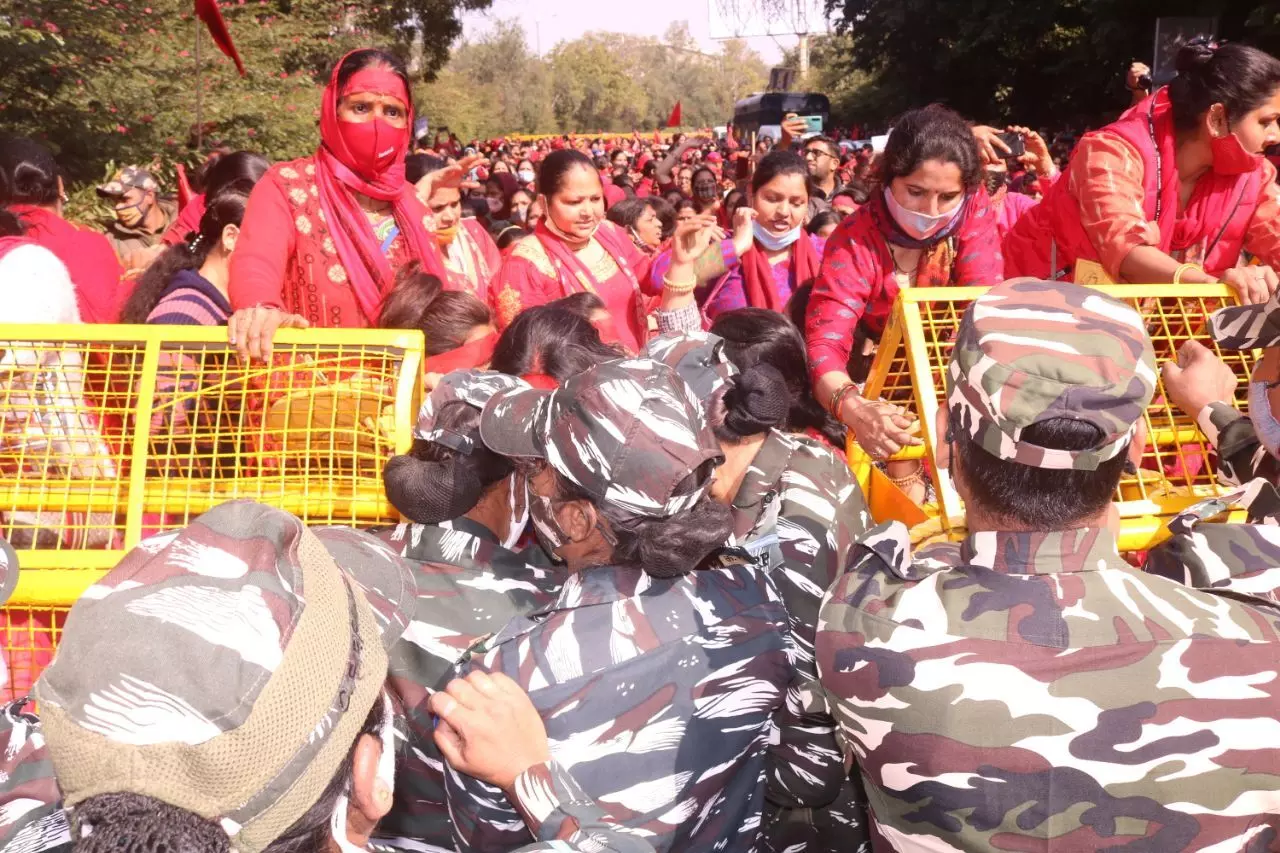
A press release issued by DSAWHU on March 11 alleged that attempts were made to get signatures from women on blank papers.
“After the suspension of the union strike, as soon as the Anganwadi workers went to their respective centers for re-joining, attempts were made at many places by the supervisors and CDPOs to get them to write the apology letters forcibly. Not only this, attempts were also made at many centers to get signatures from women workers on blank papers. Such acts are not only illegal but they are also provocative,” the press release stated.
As per their lawyer, by the time of filing of the report, close to 500 anganwadi workers had been served with a termination notice.
Huma Qazi, one of the ‘terminated’ anganwadi workers, told Gaon Connection that she is yet to receive a formal letter of termination.
“I was served with a show cause notice on February 24 and was provided with a termination notice on March 2. I still haven’t received any formal letter from my supervisor or CPDO regarding it. The notices were shared with me on Whatsapp,” Qazi, the 51-year-old who has been working as an anganwadi worker at an anganwadi centre in the capital’s Chandni Chowk area for the last 36 years, told Gaon Connection.
The anganwadi workers’ lawyer clarified that the case filed against the government does not entail imposition of ESMA [Act which prohibits protest by workers engaged with the essential service] but opined that its imposition shows that the government has nothing else to negotiate with.
“They impose ESMA only when the government cannot have negotiations, and everything has failed. Actually, there were no negotiations in the beginning – the government was not inclined to have any talks. They were issuing notices to people as well who were participating in the strike but they can’t arbitrarily impose ESMA,” Kaur said.
The ESMA order served to the anganwadi workers has also prohibited them from going on a strike for a period of six months from the date of issuance of the notification.
“It has to be ensured that firstly, the anganwadi centres function normally and secondly anganwadi workers who are willing and desire to work, are not forcibly asked to stay away from work by miscreants,” the notice dated March 9 read.
The anganwadi workers were protesting in front of Delhi Chief Minister Arvind Kejriwal’s residence at the Civil Lines demanding an increase in wages from Rs 9, 678 to Rs 25,000 while the anganwadi helpers demanded a raise from Rs Rs 4,839 to Rs 20,000.
Their other demands included their entitlement as permanent status of government employees and provision of retirement benefits.
On February 24, the Delhi government had announced to increase the monthly payment of anganwadi workers to Rs 12,720 and that of the helpers to Rs 6,810 per month.
The 22,000 anganwadi workers and helpers in Delhi are a part of the Indian government’s Integrated Child Development Scheme (ICDS) for early childhood care and development.
The beneficiaries of the scheme include children between the age of 0-6 years, pregnant women, and lactating mothers. The anganwadi workers provide supplementary nutrition, pre-school non-formal education, nutrition and health education, immunisation, health check-up, and referral services.

